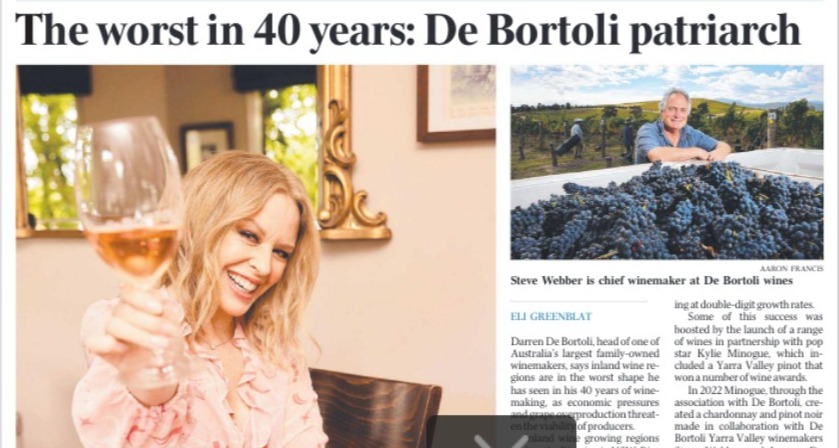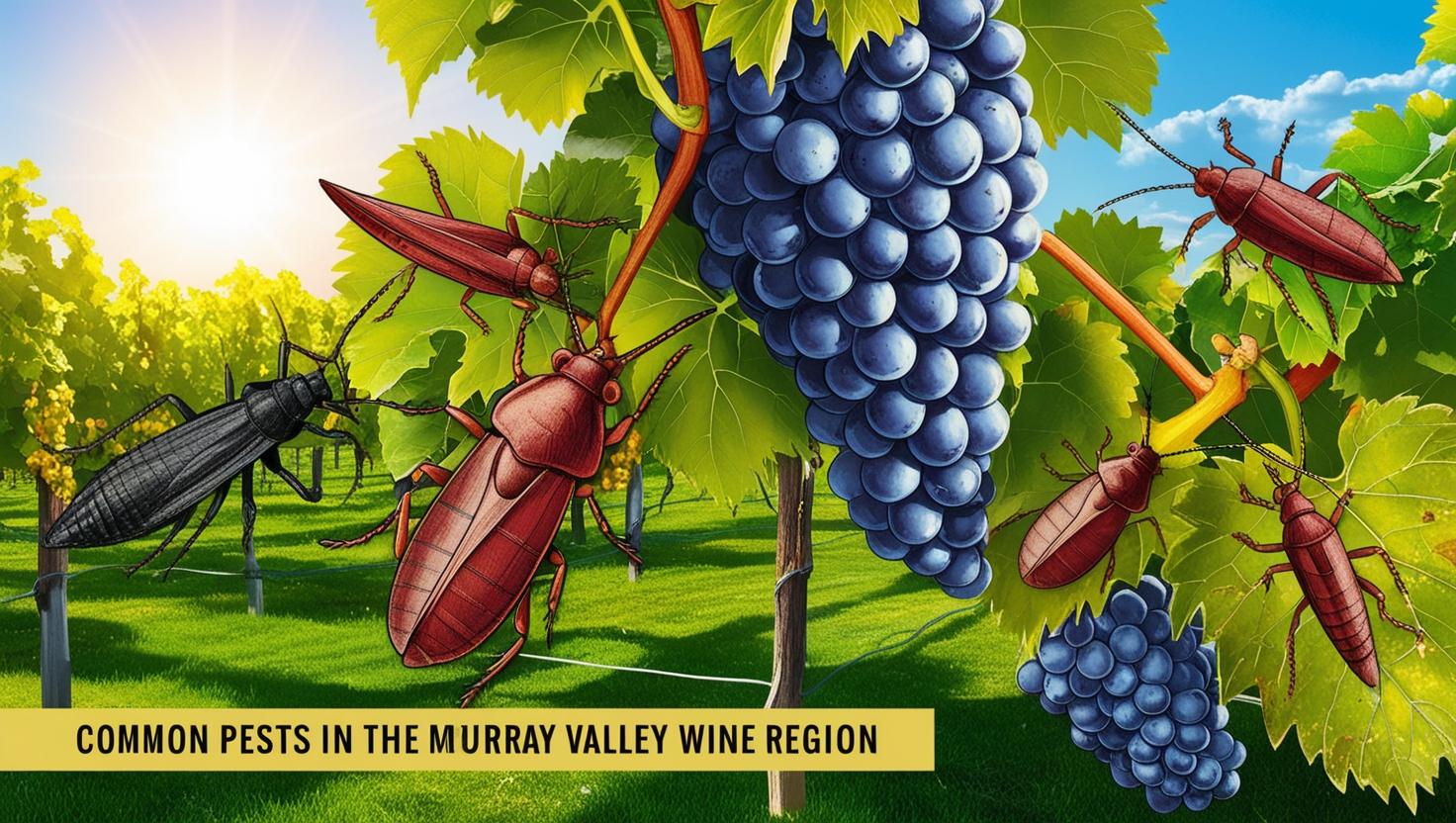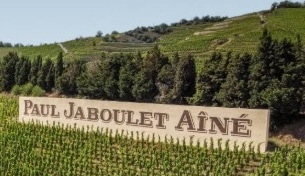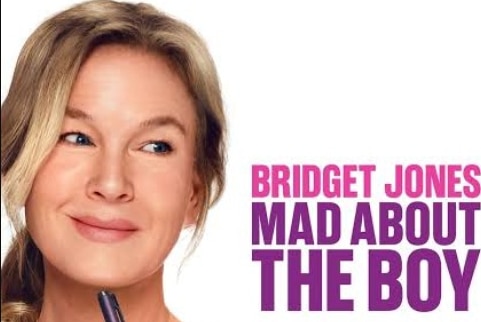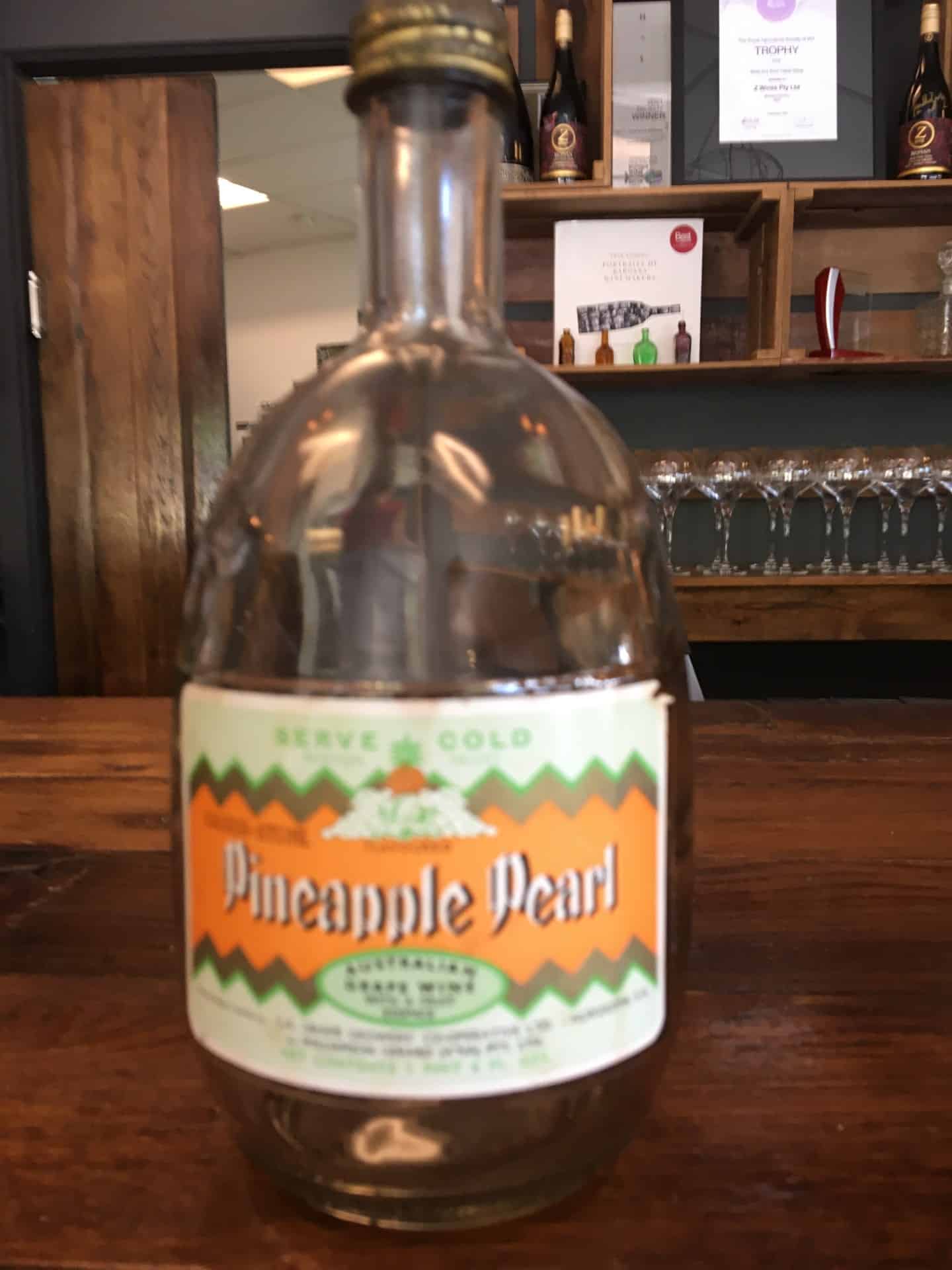Wine’s tough times hit the financial pages today with profits down for a major player and an increase in vineyards advertised for sale.
The Australian quoted Darren De Bortoli saying inland wine regions are in the worst shape he has seen in his 40 years of winemaking. And at his family’s cellar doors and restaurants in the Yarra Valley, Riverina and the Hunter Valley people are spending less on food and leaving with significantly fewer bottles of wine as cost-of-living pressures drain household disposable incomes.
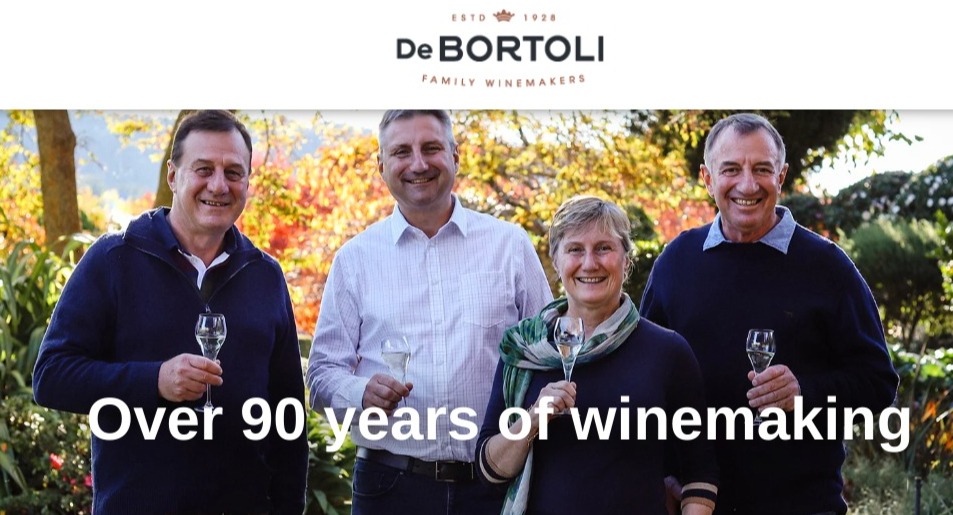
The story in The Australian said the latest accounts for De Bortoli show a slight rise in annual sales to $159.86m for 2023, up from $149.79m in 2022, with its losses more than doubling to $9.33m.
The majority of its sales ($130m) were in Australia, while there was a strong uplift in sales to Europe which almost tripled in 2023 to $16.67m. This was countered by slowing exports to the US and British markets.
One bright note for the company has been the launch of a range of wines in partnership with pop star Kylie Minogue.
Darren De Bortoli said there was an initial buoyancy from getting out of Covid but consumers were now tightening up again. “Definitely the feedback is the consumer is spending less, as you’d expect in the current economic conditions.”
The Financial Review reported how more listings are hitting the market as adult children leave the sector and business conditions get tougher.
Warren Randall, the owner of the historic Seppeltsfield Estate winery, told the paper that family wineries were up for sale as they wanted to steer clear of the financial headache arising from succession plans.
“I’ve seen many wineries being out on the market as a mixture of mainly financial pressure and a desire not to pass a lemon to the next generation,” Mr Randall said.
Agriculture real estate agent and wine expert Nick Butler told the paper eight of the nine wine-related listings he is working on are succession-related. One of them is the 18-hectare Main Ridge estate established by former Victorian Supreme Court judge James Judd in 1996.
Mr Judd put his estate and vineyards on the market as his adult children opt not to pursue winemaking into the next generation.
In Judd’s view, the growing popularity of cheaper wines and declining alcohol consumption reflect a generational mindset shift where wine production is no longer coveted among Millennials.
The paper quoted him saying “people aged 25 to 45 like disgusting beer, terrible cocktails and natural wines, which just make my head spin.”

